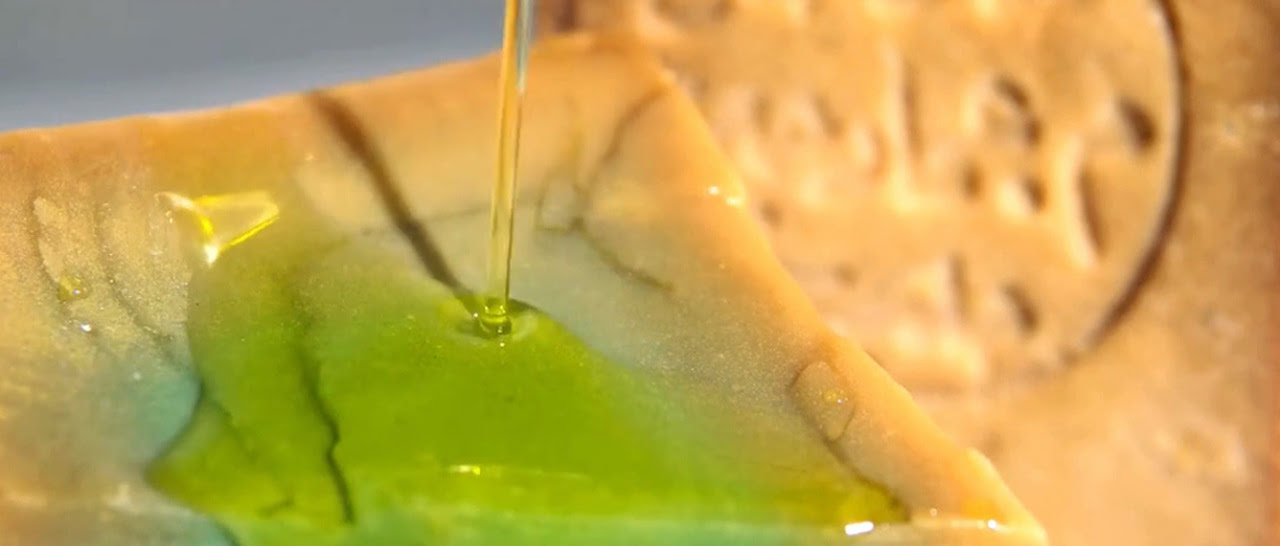
While traveling in Syria, I collected various types of Aleppo soaps, in the end I had a whole suitcase and half of Oskar’s suitcase.
I always bought the same, traditional Ghar soap (I love its Arabic name), cubic in shape and golden brown on the outside and emerald green inside.
However, each of the cubes differed from each other, mainly in the shade of the outer layer – from light yellow, through brown-gold, to almost dark brown and golden. They also differed greatly in smell. Some of them smelled like old, rancid grease, some more olive, and some with a distinct hint of bay oil. The cheapest ones, made of poor-quality olive oil and practically free of laurel oil, were sold in local agricultural supermarkets. In every such bazaar, among the piles of olives, eggplants, artichokes, you could buy poor quality, very cheap, bright yellow Ghar cubes. Higher quality soaps, the darker ones, were available in shops in the old town, branded stores of famous Aleppo brands and large bazaars (souks).

These meetings had a unique Syrian atmosphere. With hot, aromatic and obligatory sweet tea, lots of even sweeter balconies and a wealth of other types of cookies, a group of Syrians gathered (I have never met women in Syria working in any business). It was a cross-section of all generations of the family – older sons, their sons, younger boys and other employees of the company. Oskar and I were received with respect and curiosity. We spent long hours with them, asking about the ingredients, the production process, and the differences in the soap bars offered by traders. It ended with conversations about their traditions, culture and our stories about Poland. We have learned a lot of details and information about soap making.

While the olive oil was quite familiar to me, in the laurel oil, which was brought to me and proudly presented, I fell in love “at first sight” and at first smell. I’m gone and I miss it to this day. A beautiful, deep, dark green, emerald color and a wonderful herbal, intense fragrance. The best-quality laurel oils were purchased from producers in northern Syria and the coastal areas of Turkey.
Since then, bay leaves have become my favorite spice, which I add to any salty and even sweet dish. I also like to smoke crushed bay leaves that fill the house with this noble fragrance. However, the scent of blueberry oil known in Aleppo is unmatched.
Traveling definitely influences my habits, not only skin care, but also culinary. If we have the opportunity to meet, I will prepare a chocolate – rosemary – lavender cake and a delicious sweet, aromatic, milk, rice pudding, where bay leaf plays an important role.
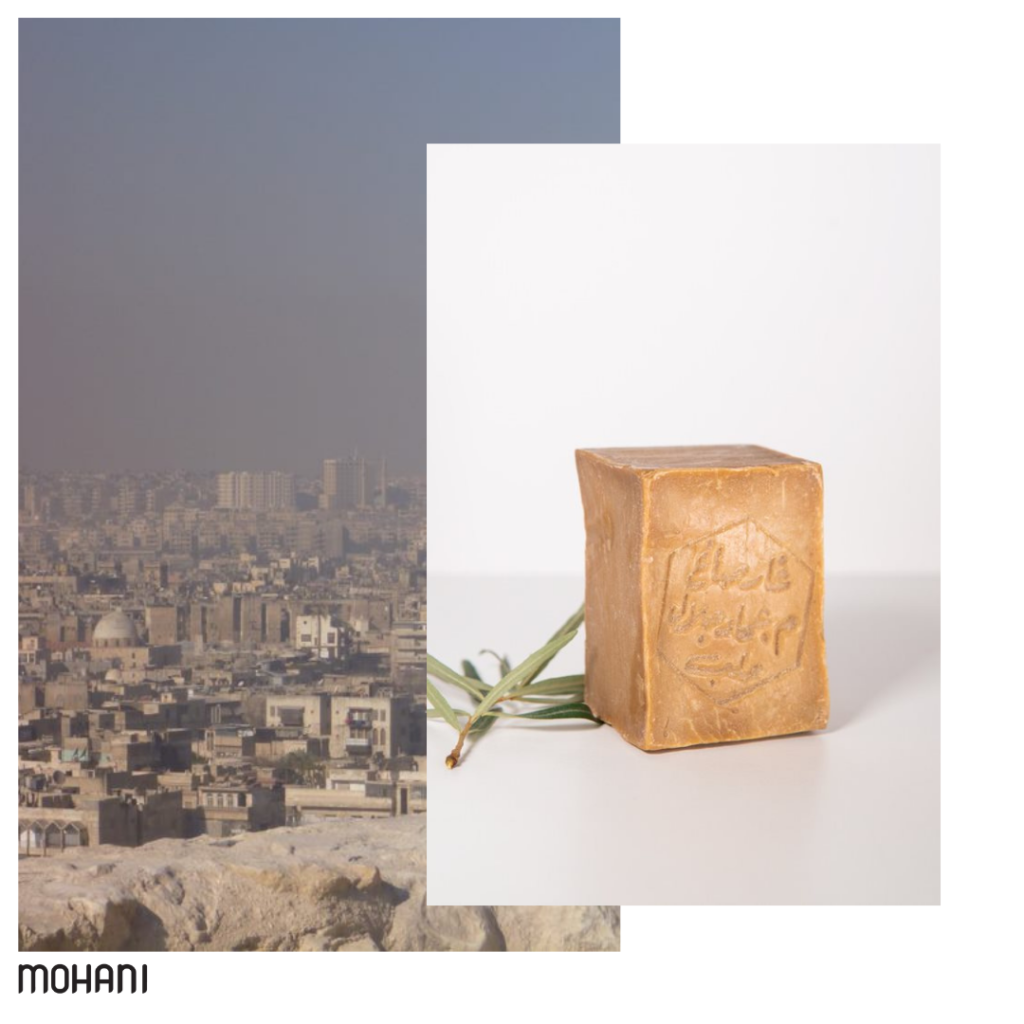
Ingredients
Laurel berry oil
Laurel trees and shrubs (laurus nobilis) are evergreen and aromatic trees. In prehistoric times, laurel forests covered a huge part of the Mediterranean basin. With the drying up of the sea, the sea disappeared, now their remains cover northern parts of Syria, southern parts of Turkey, Spain, Portugal and northern parts of Morocco. They grow in coastal and mountain provinces such as Latakya, Taurus and Kassab. The villagers collect berries from wild trees and extract the oil from them using traditional methods. The berries are boiled in water for several hours, and the oil that comes out of the berries flows onto its surface, is collected, filtered and bottled. About 1 liter of bay oil is made from 16 kilograms of laurel berries. In recent years, the majority of bay berry oil has been supplied from Turkey. The quality of laurel oil varies depending on the content of fatty acids in it, which is different in each variety of laurel. Each variety is characterized by a different type of berry, which may have a different smell, size and color.
The properties of bay oil for the skin are actually healing. This oil has anti-inflammatory, cleansing and regenerative properties. It soothes and helps get rid of any stubborn skin problems. It has a strong antibacterial effect.
Olive oil
I love trees. I also love those little olive trees that are sold in pots here, but my heart beats faster at the sight of an old, naturally growing olive tree. It is a masterpiece. When planning a trip to Lebanon, I dreamed of seeing ancient olive trees, whose age is estimated at 6,000 years. It was said that it was from these trees that the dove brought Noah a branch that heralded the end of the flood. I also dreamed of seeing slightly younger than olive, ancient cedar trees, which are extraordinary unique and a symbol of Lebanon. Unfortunately, a month before our trip, the world spread information about the kidnapping of several traveling cyclists in Lebanon. They just disappeared, only their bikes left on the side of the road. Upon arrival in Beirut, we were advised not to visit these areas. I am convinced that I will come back there one day. Why am I mentioning this? To draw attention to the beauty of olive trees and groves from which olives are obtained. The vast olive groves in Syria are also breathtaking. Their dusty leaves blend in with the landscape, which is also perfectly reflected in the Aleppo soap bar.
Oil pressed from these olives has great moisturizing, cleansing and oiling properties. Together with laurel oil, it creates a wonderful duo, caring for even the most demanding skin.

While traveling in Syria, I collected various types of Aleppo soaps, in the end I had a whole suitcase [...]
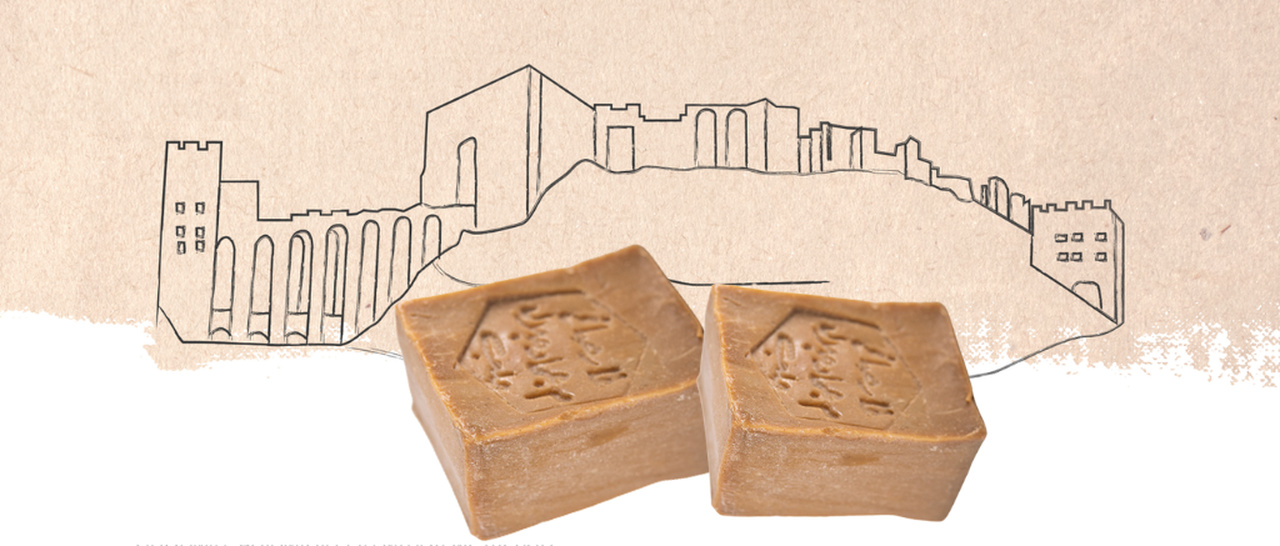
Looking at a golden-brown bar of Aleppo soap, inhaling its earthy scent, I see desert, stone landscapes, [...]
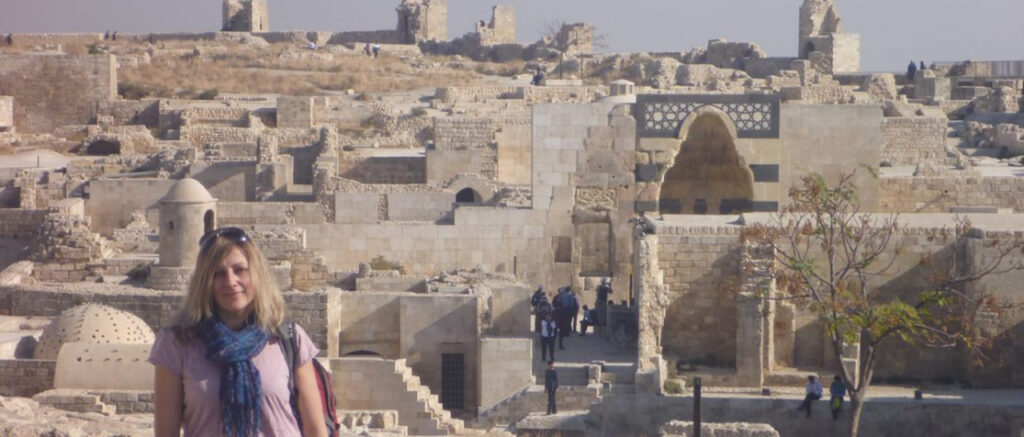
For Aleppo soap in the footsteps of former Silk Road merchants. In my long-term search for natural [...]
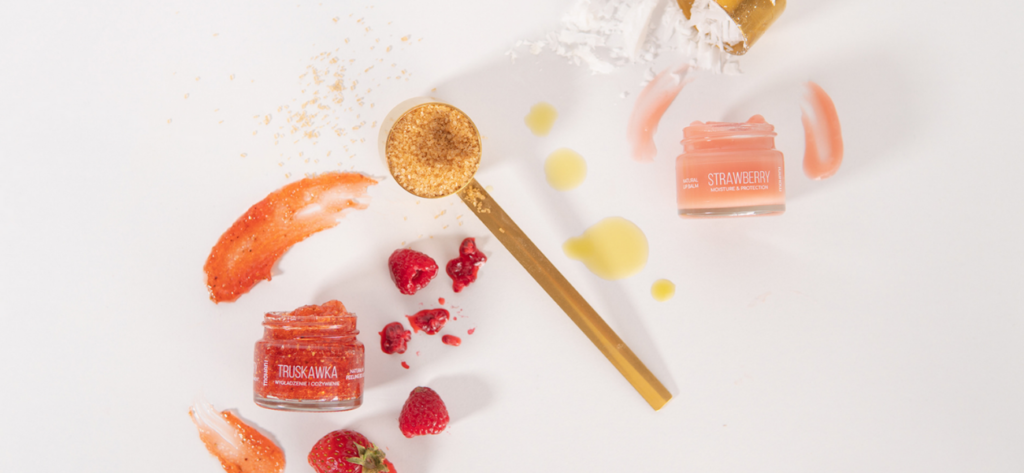
The skin of our lips is thin and delicate. Due to the lack of melanin and a very small amount of [...]